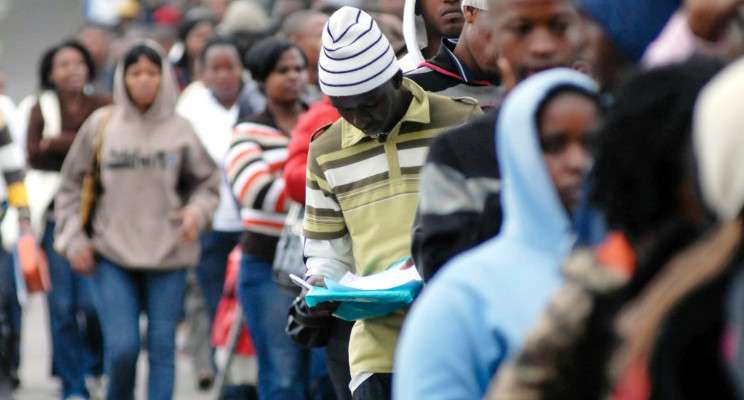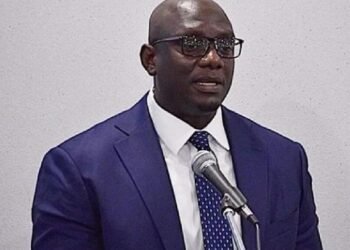In a recent statement, Mr. Yaw Osafo Maafo, the Senior Presidential Adviser, highlighted the alarming issue of youth unemployment in Ghana, emphasizing that despite the government’s efforts to bolster the private sector for job creation, the situation remains critically high. This concern has sparked discussions about the potential implications of this growing problem on national security.
Ghana, like many developing countries, faces significant challenges in creating employment opportunities for its young population. The country’s demographic structure, characterized by a large youth population, exacerbates the urgency of addressing this issue. According to data from the Ghana Statistical Service, the youth unemployment rate stands at over 14%, a figure that has remained stubbornly high despite various government initiatives aimed at job creation.
“Our youth unemployment is linked to tertiary education. When I was the Minister of Education, there were five public universities in Ghana, but there were more than 90 universities in Ghana. So, we are talking about only five public universities in 2005 and over 90 with their products searching for employment. So, the solution that the Public Sector Reform will propose must be solution-oriented to save the situation.”
Mr. Yaw Osafo Maafo, the Senior Presidential Adviser
The government has been proactive in tackling youth unemployment, focusing on policies designed to stimulate the private sector. These include tax incentives for businesses, especially those in sectors with high potential for job creation, such as technology, agriculture, and manufacturing. Additionally, the government has launched several programs aimed at equipping the youth with the necessary skills to be employable in these sectors.
Mr Osafo-Maafo said successive Governments had over the years, undertaken reforms to improve public sector performance, however, what he described as “modest reforms in the public sector” have not led to improvements in job creation and wealth maximization.
However, despite these efforts, the impact on reducing youth unemployment has been less than satisfactory. The private sector’s growth has not been sufficient to absorb the large number of job seekers, leading to a persistent high unemployment rate among the youth.
The persistence of high youth unemployment rates raises concerns about its potential impact on national security. A report by the International Labour Organization (ILO) suggests that high levels of youth unemployment can lead to social unrest, increased crime rates, and even contribute to radicalization. In the context of Ghana, where the youth make up a significant portion of the population, the implications of this issue are particularly concerning.
Call to Action

In response to these concerns, Mr. Osafo Maafo has called for a multi-faceted approach to address the issue. This includes not only continuing to support the private sector but also investing in education and vocational training programs tailored to the needs of the job market. He emphasized the importance of creating an enabling environment for businesses to thrive while also ensuring that the youth are equipped with the skills needed to secure employment.
Mr. Osafo Maafo further indicated that innovative technology of efficiency had evolved and Ghana’s public administration system would be brought to date and made innovative.
“We need to redefine the role of the public sector to enable it to serve as the needed catalyst for a competitive private sector and improved service delivery to the citizens. It is instructive to note that, the effectiveness and efficiency of a country’s public sector is a key determinant of growth and development. Public sector reforms are still not an option for the public sector of Ghana, but a necessity.”
Mr. Yaw Osafo Maafo, the Senior Presidential Adviser
The issue of youth unemployment in Ghana is complex and requires a comprehensive strategy to address. While the government’s efforts to boost the private sector are commendable, the challenge of youth unemployment remains a significant threat to the nation’s stability and security. As Mr. Osafo Maafo’s statement underscores, it is imperative for all stakeholders, including the government, the private sector, and educational institutions, to work together to find sustainable solutions to this pressing issue.
READ ALSO: Actress Explains Preference For Running Some Of Her Businesses Private























